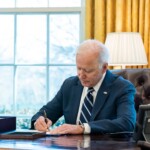“The centennial of the Republic is not a celebratory moment…Rather, it is marked by sorrow and heartache as I watch helplessly from afar my financially bankrupted country straying away from democracy and toward a ruthless fascism. Although there are many accounts of what went wrong and what can be done about it, I focus here on my own sociological interpretation.”
As I was born and raised in Turkey, I would wonder at every annual celebration of the founding of the Turkish Republic on 29 October 1923 where I would be and what I would be doing at the 2023 centennial.
Well, that year has finally arrived, and I live in exile teaching sociology in the United States. I am unable to return to my homeland for fear of arrest for having written on the Turkish denial of the Armenian Genocide and for currently working on the subsequent denial of state and societal violence against the Kurds in Turkey.
The breaking point came in January 2016, when I signed the Peace Petition with 2,200 other academics in and from Turkey, asking the Turkish state and government to use diplomacy, not violence, in negotiating with the Kurds. Many of the signatories in Turkey lost their jobs, some left to live in exile in Europe or the United States, some had their passports canceled and could not leave, and a few who remained behind committed suicide. All this occurred because President Recep Tayyip Erdoğan immediately declared that all who had signed the petition were “terrorists,” and “traitors to the nation,” leading the public prosecutor to take action against all of us. I was not directly impacted because I lived abroad, but I have worked with exiled academics, trying to find them employment.
Now, Erdoğan is still president, ruling Turkey autocratically and violently with no freedom of thought and no rule of law.
I come from an old Istanbul business family and was a member of the secular upper class—referred to as “white Turks”—before the 2003 advent to power of Erdoğan’s Justice and Development Party (AKP). Since then, Erdoğan has approached and excluded me as an “other,” alongside women, Kurds, Alevis, Assyrians, Arabs and the like; he has reduced the Turkish nation to AKP partisans alone, violently excluding all others. As a consequence, the people I grew up and went to school with were hit by trumped up charges and imprisoned, like my classmate Osman Kavala and my friend Çiğdem Mater.
So, the centennial of the Republic is not a celebratory moment for me. Rather, it is marked by sorrow and heartache as I watch helplessly from afar my financially bankrupted country straying away from democracy and toward a ruthless fascism. Although there are many accounts of what went wrong and what can be done about it, I focus here on my own sociological interpretation.
Even though the Turkish Republic was formally ratified on 29 October 1923 by the first and only fully democratic Parliament, the origins of the idea of a republic reach further back into Ottoman history. This origin has been impossible to access because official Republican history traces it symbolically back only to 19 May 1919, when the Ottoman general Mustafa Kemal Atatürk alighted in Samsun with a retinue of 48 soldiers to allegedly contain local violence, but really to commence the Independence Struggle against Allied Occupation. Mustafa Kemal’s re-narration of his experience back then at the 1927 annual meeting of his party, an account then printed and later sacralized as “His Speech (Nutuk),” defined him as the sole founder, the sole father of the Turkish Republic.
This truncated official historiography has created a very significant silence. By starting his narrative with the sentence “I alighted in Samsun on 19 May 1919,” Mustafa Kemal pushed all that happened before that auspicious landing to the realm of pre-history, one irrelevant to the new Republic. By doing so, not only was the origin of the idea of a republic to replace the empire obfuscated, but Mustafa Kemal’s close connections with the Committee of Union and Progress (hereafter CUP), which had ruled the Ottoman Empire between 1908-1918 and which had generated this idea first, were also silenced.
I would argue that the origins of the Turkish Republic ought to be traced instead back to 1905, when the Committee of Union and Progress held its first meeting as a political body in Paris and then started recruiting Ottoman officers and officials in order to actualize the 1908 Young Turk Revolution against sultan Abdülhamid II.
The ensuing 1908-1918 CUP rule ended in disaster, and party leaders escaped to Germany in 1918. They lost the Balkan Wars and then entered World War I, destroying the infrastructure of the empire, and committing genocide against their Armenian subjects in the process. Although Mustafa Kemal belonged to the CUP and was sent to Samsun by the CUP leadership to start the Independence Struggle, he downplayed this connection as he gained more power, eliminating the CUP members around him in 1926, using an alleged assassination attempt directed at his person as legal leverage.
Many of the ensuing reforms were predicated on this allegedly eliminated CUP vision, but the ghost of the CUP has continued to haunt the Turkish Republic to this day—especially through the clandestine political violence that had been its signature. This pattern is evident when we analyze the political trajectory of the Republic: political rule between 1908 and 1926 was conducted indirectly through a committee that engaged in clandestine violence with military backing.
Even when the CUP leadership left the country, the Unionist spirit still pervaded, producing the backbone of Turkish nationalism and continuing until 1950. The only change took place in 1927, with the substitution of one-party rule for that of the committee, where the military still dictated the boundaries of the political.
By 1950, The Unionist spirit was replaced with a Kemalist one, whereby citizens and especially the military not only adhered to but also sacralized Mustafa Kemal Atatürk. Even though Turkey transformed into multi-party rule in 1951, the country was marked until 2002 by a political field carefully guarded and directed by the Turkish military behind a scaffolding of party-led democracy
A crucial change occurred in 2003, with advent to power of the AKP against military opposition, changing political rule from one that was military-backed to one that was civilian-led. This change could only be sustained by bolstering the civil security forces, including the police, against a possible military coup. The result was fascistic, increasing civil control over citizens and stifling democracy. Erdoğan attempted to contain the military by merging state and government in his person, and by working with other state actors like the National Intelligence agency (MIT) populated by those officials that formed, alongside officers, the secret members of the “deep state.” This secret, conservative, and militantly nationalist formation still puts the preservation of the Turkish nation-state before the interests of its citizens and humanity at large, overseeing and controlling the political trajectory of the country, with or without Erdoğan.
Where the Turkish Republic is heading will be clearer after the general elections on 14 May 2023. If the AKP loses, the opposition coalition may be able to establish the still missing democratic infrastructure of checks and balances that could possibly lead the Republic toward a democratic future. Yet the litmus test for Turkish democracy after that initial win will be the inclusion in political rule, on equal terms, of the Kurdish-supported People’s Democratic Party (HDP). If the AKP wins, I would surmise that it would take Turkey at least half a century to return to democratic rule.
The views and opinions expressed above are the author’s and do not represent those of the Free Turkish Press.


